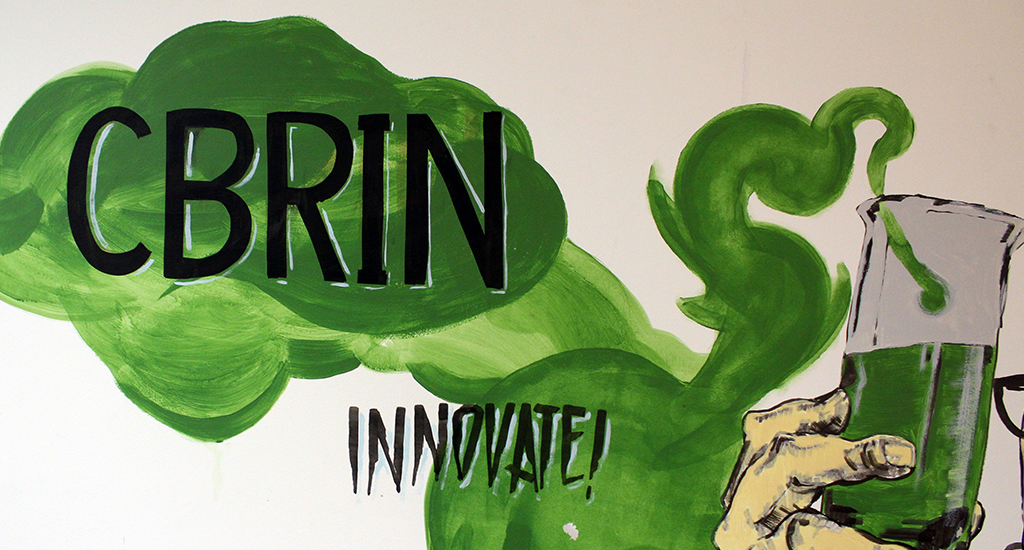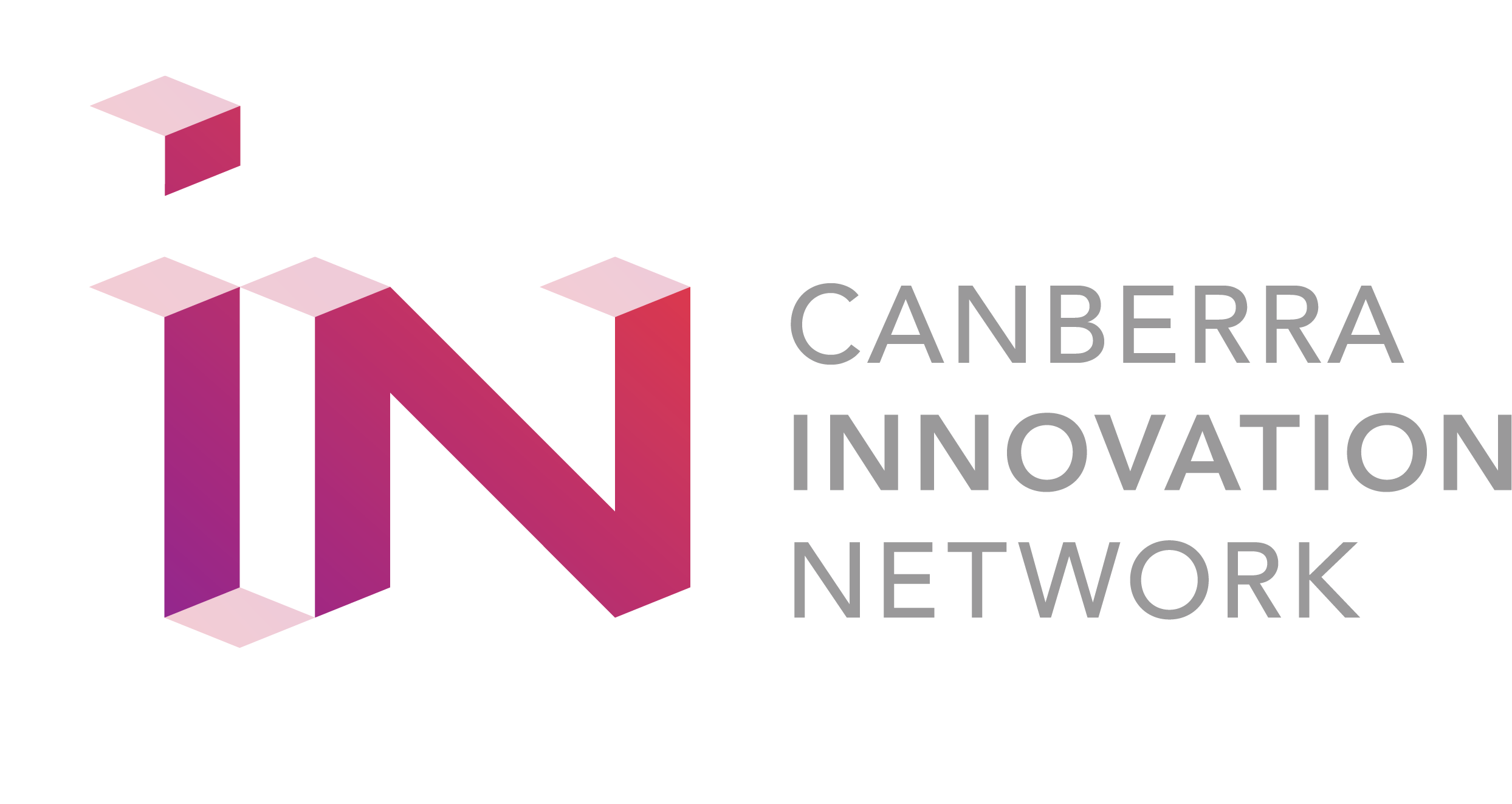- 18 June 2019
- Posted by: Canberra Innovation Network
- Category: General News

In Australia, we love to celebrate success. Whether it’s kicking a goal on the football field or passing a final exam at school, we hold winners in high esteem.
Same applies in the business world. Those who succeed are lauded at awards and in media while those who don’t are little talked about or forgotten altogether. We tend to acknowledge those who win for the efforts they have invested. This sounds all correct, except by not talking positively about failure and progress through finding what does not work we, create a big stigma and we nurture a real ‘fear of failure culture’.
This entrenched attitude needs to change. If, as a nation, we are to boost our levels of truly innovative entrepreneurship and the creation of high-growth start-up businesses, we need to learn how to celebrate the learnings that failure enables and help as many founders as we can overcome those fears.
Permeating our culture
The distaste for failure that currently permeates our business culture can be traced back to our school system. Students are taught from a young age that, if they prepare well and if they put in the effort, they will succeed. Unfortunately, this ‘reward for effort’ system does not really demonstrate how critical positive influence failure can have on their future journeys. What if our kids kept trying to do something really hard and failed a number of times. Would their efforts be applauded and celebrated? Probably not. As parents and teachers we primarily want them to feel good and successful.
Fast forward into the business world and those same individuals are understandably reluctant to take risks. Budding entrepreneurs feel as though they have to invest significant time (and money) into their idea before unveiling it. They believe their product or service has to be completely finished and perfect before it can be launched to the market.
This ‘success’ culture and mindset results in considerable waste across our early-stage venture economy. By not talking to customers early and often enough, our innovators are spending resources and money on building things that no one will buy. They do this because they fear rejection and are driven to succeed. This, translates into a huge opportunity cost for the broader economy.
Rather than being fixated on success, our entrepreneurs should be adopting the ‘fail fast’ attitude that’s so prevalent in successful start-ups in places such as Silicon Valley. They need to realise that it is far better to invest less time and resources at the start of a new project until demand for what’s being developed has been validated. And such demand can only be validated by interacting with real customers.
This approach comprises three key steps. They are:
- Validate the customer:
Determine whether your prospective customers are actually facing the problem that you are trying to overcome with your new offering. Are they saying they have this problem or is it just your assumption? If the problem doesn’t exist in their hearts and minds, neither will demand.
This customer validation step is also important for the founder’s ability to attract funding. Investors need to be confident demand exists before they will invest their funds in a new project
- Examine existing solutions:
Once you know your customers actually have a problem, next look at how they are currently trying to solve it. Are they wasting time and money? Are they experiencing frustration with the existing solutions? If your offering will give them a much better alternative, your chance of success is much higher.
- Start charging the customer:
Because we have an innate fear of failure, we often delay the point at which we ask customers for money. Instead, you should plan to charge money while your product is still under development. If your prospective customers are reluctant to pay, this could be a sign of challenges ahead when the official launch occurs. Aim for being surprised how much they are willing to pay. This is a sign of real demand.
In any case, you will receive critical feedback for your development when you attempt to charge money. Part of this feedback may be that your offering is interesting but not valuable (fail) but, even if this occurs, it will be much faster and much cheaper than when you work towards perfection without involving your real customers.
Shifting our mindset
Taking steps to shift the mindset of Australian entrepreneurs, ecosystems and society towards one that ‘embraces failure’ is vital for the future success of the country. We got used to being spoilt by our abundance of natural resources that have supported a strong economy and enviable lifestyle for decades. If we do not shift, we risk becoming less competitive and eventually irrelevant globally.
Australia needs many more entrepreneurs, with both big ideas and the courage to fail, to be able to compete in this emerging super-fast moving, global knowledge economy. We also need communities, services and infrastructure that supports these entrepreneurs on their discovery journeys and helps them fail in the right way.
We also need more science-based entrepreneurship to be encouraged because it is more defensible and provides us with longer product life cycles to maximise the impact of the innovations. We need entrepreneurs who are building for the future world demand and we need to realise that nobody is smart enough to just know what customers will want. We need to keep asking and keep failing as we learn. We need to not only to tolerate entrepreneurial failure, but also celebrate it as a necessary and vital part of the innovation process.
Taking these steps will ensure Australia is best positioned to excel on the global stage in coming years. Not overcoming our fear of failure is not an option. Consider this: if you are not failing as an innovator, you are not doing something that is really hard or something that will have a real impact. Fear not failing more than you fear not succeeding.
This article was originally posted at https://www.dynamicbusiness.com.au/general/failure-will-help-us-win.html by Loren Webb.

